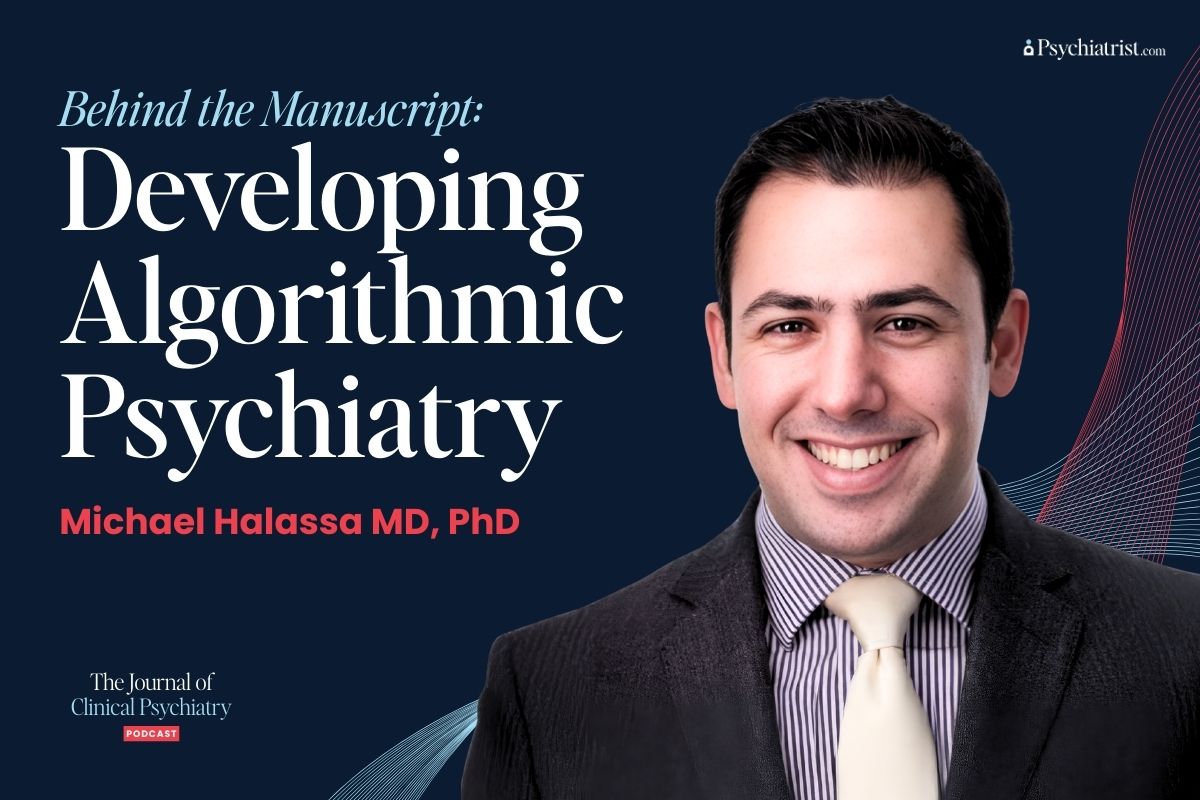Abstract
Objective: This proof-of-concept study examined the effects of brexpiprazole treatment on substance use, psychiatric symptoms, and quality of life in patients with co-occurring schizophrenia and substance use disorder.
Methods: In this 12-week study, patients diagnosed with schizophrenia and substance use disorder using DSM-5 criteria were randomly assigned to switch from their current antipsychotic medication to brexpiprazole (up to 4 mg/day) or remain on their current antipsychotic treatment (treatment as usual [TAU]). Substance use was assessed by the number of days of substance use and the dollars spent on substance in the past week, and substance craving was assessed using the Visual Analog Scale (VAS). Quality of life was assessed using the Heinrichs-Carpenter Quality of Life Scale (QOL). In addition, psychiatric symptoms were assessed using the Positive and Negative Syndrome Scale (PANSS) and the Clinical Global Impression Scale-Severity of Illness.
Results: Thirty-nine patients were randomized (21 in the brexpiprazole group, 18 in the TAU group). Mixed models for repeated measures showed that, despite the lack of statistical significance, a consistent pattern of decrease in the brexpiprazole group was observed for the number of days of substance use and the dollars spent, as well as substance craving; the brexpiprazole group had a 15.5 points greater decrease in VAS (P=.157) and a $33.3 greater decrease in the dollars spent (P=.108) from baseline to week 12 compared with the TAU group. The brexpiprazole group did show a statistically significant 8.9 points greater increase in QOL compared with the TAU group (P =.020). Even though it was not statistically significant, the brexpiprazole group had a 2.4-point greater decrease in the PANSS General Psychopathology subscale score (P=.150) and a 1.9-point greater decrease in the PANSS Negative Symptom subscale score (P=.126) compared with the TAU group.
Conclusion: This study suggests that brexpiprazole might be beneficial in reducing substance craving and use in patients with schizophrenia and co-occurring substance use disorder; this potential benefit may help improve quality of life and overall psychiatric symptoms in a difficult-to-treat patient population.
Trial Registration: ClinicalTrials.gov identifier: NCT03526354.
J Clin Psychiatry 2025;86(4):25m15786
Author affiliations are listed at the end of this article.
Members Only Content
This full article is available exclusively to Professional tier members. Subscribe now to unlock the HTML version and gain unlimited access to our entire library plus all PDFs. If you're already a subscriber, please log in below to continue reading.
References (35)

- Regier DA, Farmer ME, Rae DS, et al. Comorbidity of mental disorders with alcohol and other drug abuse. Results from the Epidemiologic Catchment Area (ECA) Study. JAMA. 1990;264(19):2511–2518. PubMed
- Green AI, Salomon MS, Brenner MJ, et al. Treatment of schizophrenia and comorbid substance use disorder. Curr Drug Targets: CNS Neurol Disord. 2002;1(2):129–139. PubMed CrossRef
- Volkow ND. Substance use disorders in schizophrenia-clinical implications of comorbidity. Schizophr Bull. 2009;35(3):469–472. PubMed CrossRef
- Degenhardt L, Hall W. The relationship between tobacco use, substance-use disorders and mental health: results from the National Survey of Mental Health and Well-being. Nicotine Tob Res. 2001;3(3):225–234. PubMed CrossRef
- DeQuardo JR, Carpenter CF, Tandon R. Patterns of substance abuse in schizophrenia: nature and significance. J Psychiatr Res. 1994;28(3):267–275. PubMed CrossRef
- van Dijk D, Koeter MW, Hijman R, et al. Effect of cannabis use on the course of schizophrenia in male patients: a prospective cohort study. Schizophr Res. 2012;137(1-3):50–57. PubMed CrossRef
- Green AI, Zimmet SV, Strous RD, et al. Clozapine for comorbid substance use disorder and schizophrenia: do patients with schizophrenia have a reward-especially among those more recentdeficiency syndrome that can be ameliorated by clozapine?. Harv Rev Psychiatry. 1999;6(6):287–296. PubMed CrossRef
- Chambers RA, Krystal JH, Self DW. A neurobiological basis for substance abuse comorbidity in schizophrenia. Biol Psychiatry. 2001;50(2):71–83. PubMed CrossRef
- Martinotti G, Chiappini S, Mosca A, et al. Atypical antipsychotic drugs in dual disorders: current evidence for clinical practice. Curr Pharm Des. 2022;28(27):2241–2259. PubMed CrossRef
- Albanese MJ, Khantzian EJ, Murphy SL, et al. Decreased substance use in chronically psychotic patients treated with clozapine. Am J Psychiatry. 1994;151(5):780–781. PubMed CrossRef
- Buckley P, Thompson P, Way L, et al. Substance abuse among patients with treatment-resistant schizophrenia: characteristics and implications for clozapine therapy. Am J Psychiatry. 1994;151(3):385–389. PubMed CrossRef
- Brunette MF, Drake RE, Xie H, et al. Clozapine use and relapses of substance use disorder among patients with co-occurring schizophrenia and substance use disorders. Schizophr Bull. 2006;32(4):637–643. PubMed CrossRef
- Cavallotto C, Chiappini S, Mosca A, et al. Examining lurasidone efficacy in patients with schizophrenia spectrum illness and concurrent alcohol and substance use disorder:a prospective, multicentric, real-world investigation. J Clin Med. 2024;13(8):2206. PubMed CrossRef
- Sørensen G, Sager TN, Petersen JH, et al. Aripiprazole blocks acute self-administration of cocaine and is not self-administered in mice. Psychopharmacology. 2008;199(1):37–46. PubMed CrossRef
- Wee S, Wang Z, Woolverton WL, et al. Effect of aripiprazole, a partial dopamine D2 receptor agonist, on increased rate of methamphetamine self-administration in rats with prolonged session duration. Neuropsychopharmacology. 2007;32(10):2238–2247. PubMed CrossRef
- Brown ES, Jeffress J, Liggin JD, et al. Switching outpatients with bipolar or schizoaffective disorders and substance abuse from their current antipsychotic to aripiprazole. J Clin Psychiatry. 2005;66(6):756–760. PubMed CrossRef
- Moreira FA, Dalley JW. Dopamine receptor partial agonists and addiction. Eur J Pharmacol. 2015;752:112–115. PubMed CrossRef
- Maeda K, Sugino H, Akazawa H, et al. Brexpiprazole I: in vitro and in vivo characterization of a novel serotonin-dopamine activity modulator. J Pharmacol Exp Ther. 2014;350(3):589–604. PubMed CrossRef
- Fleischhacker WW. Aripiprazole. Expert Opin Pharmacother. 2005;6(12):2091–2101. PubMed CrossRef
- Carey KB, Carey MP, Maisto SA, et al. Temporal stability of the timeline followback interview for alcohol and drug use with psychiatric outpatients. J Stud Alcohol. 2004;65(6):774–781. PubMed CrossRef
- Nicholson AN. Visual analogue scales and drug effects in man. Br J Clin Pharmacol. 1978;6(1):3–4. PubMed CrossRef
- Heinrichs DW, Hanlon TE, Carpenter WT Jr. The Quality of Life Scale: an instrument for rating the schizophrenic deficit syndrome. Schizophr Bull. 1984;10(3):388–398. PubMed CrossRef
- Kay SR, Fiszbein A, Opler LA. The Positive and Negative Syndrome Scale (PANSS) for schizophrenia. Schizophr Bull. 1987;13(2):261–276. PubMed CrossRef
- Guy W. ECDEU Assessment Manual for Psychopharmacology. US Dept of Health, Education, and Welfare, Public Health Service, Alcohol, Drug Abuse, and Mental Health Administration, National Institute of Mental Health, Psychopharmacology Research Branch, Division of Extramural Research Programs; 1976. Rev ed.
- Lombardozzi G, Trovini G, Amici E, et al. Brexpiprazole in patients with schizophrenia with or without substance use disorder: an observational study. Front Psychiatry. 2023;14:1321233. PubMed CrossRef
- Chiappini S, Cavallotto C, Mosca A, et al. Investigating the effectiveness of brexpiprazole in subjects with schizophrenia spectrum illness and co-occurring substance use disorder: a prospective, multicentric, real-world study. Pharmaceuticals. 2024;17(4):535. PubMed CrossRef
- Szerman N, Basurte-Villamor I, Vega P, et al. Once-monthly long-acting injectable aripiprazole for the treatment of patients with schizophrenia and co-occurring substance use disorders: a multicentre, observational study. Drugs Real World Outcomes. 2020;7(1):75–83. PubMed CrossRef
- Nickols JER, Dursun SM, Taylor AMW. Preclinical evidence for the use of the atypical antipsychotic, brexpiprazole, for opioid use disorder. Neuropharmacology. 2023;233:109546. PubMed CrossRef
- Schmidt LM, Hesse M, Lykke J. The impact of substance use disorders on the course of schizophrenia-a 15-year follow-up study: dual diagnosis over 15 years. Schizophr Res. 2011;130(1-3):228–233. PubMed CrossRef
- Murthy P, Mahadevan J, Chand PK. Treatment of substance use disorders with co-occurring severe mental health disorders. Curr Opin Psychiatry. 2019;32(4):293–299. PubMed CrossRef
- Ziedonis DM. Integrated treatment of co-occurring mental illness and addiction: clinical intervention, program, and system perspectives. CNS Spectr. 2004;9(12):892–925. PubMed CrossRef
- Hser YI, Grella C, Evans E, et al. Utilization and outcomes of mental health services among patients in drug treatment. J Addict Dis. 2006;25(1):73–85. PubMed CrossRef
- Manseau M, Bogenschutz M. Substance use disorders and schizophrenia. Focus (Am Psychiatr Publ). 2016;14(3):333–342. PubMed CrossRef
- Hunt GE, Siegfried N, Morley K, et al. Psychosocial interventions for people with both severe mental illness and substance misuse. Schizophr Bull. 2014;40(1):18–20. PubMed CrossRef
- Hunt GE, Siegfried N, Morley K, et al. Psychosocial interventions for people with both severe mental illness and substance misuse. Cochrane Database Syst Rev. 2013;(10):Cd001088. PubMed CrossRef





